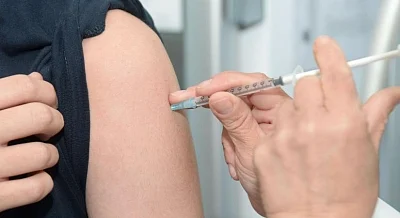A nationwide study by the US CDC has confirmed that protection from severe COVID falls significantly within four months of getting a third vaccine shot.
The study published on 12 February indicates that, just like immunity reduces gradually after the second vaccine shot, it falls similarly after the third vaccine as well. What does this mean?
In a nutshell, you're very likely to need multiple and possibly scheduled vaccinations from COVID-19, if you want to protect yourself from the worst effects of COVID-19.
What Did The Study Find?
The study found that people who had received a second and third dose of the Pfizer or Moderna vaccine were afforded better protection from the worst of COVID-19's effects. This includes increased protection from hospitalisation.
The study showed that protection from severe COVID or hospitalisation fell from 96 percent in the first two months to 76-78 percent after four months. Immunity from moderate COVID fell from 96 percent to 87-89 percent after four months, after a booster.
It also pointed at class disparity between the groups who received a second and third vaccine, namely that a much smaller percent of minority communities (black and hispanic) had received a third booster, as opposed to the white community.
What Does This Mean For Us Still Waiting for Our Third Dose?
In India, third or 'precautionary' dose has been opened only for those above 60 years of age and healthcare workers. The decision to expand the programme is pending.
You will, in all likelihood, need more than three doses of the vaccine to protect yourself from the worst effects of COVID-19. If this becomes the norm, it could mean getting COVID-19 vaccinations at regular intervals across the year.
But whether this will be implemented, and if so, how, is still too early to say.

